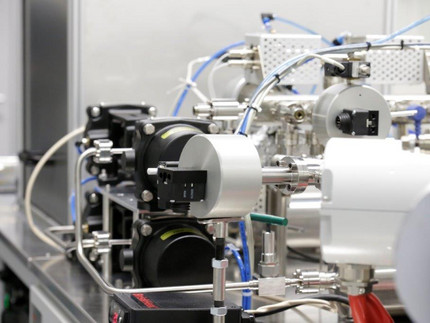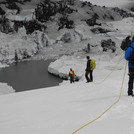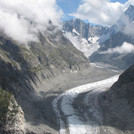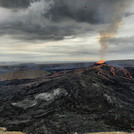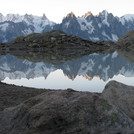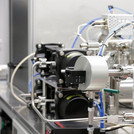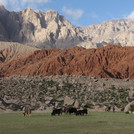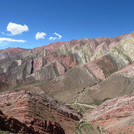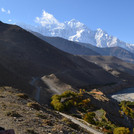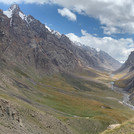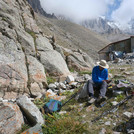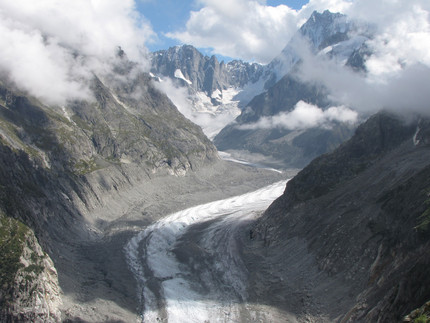Geosciences | Master
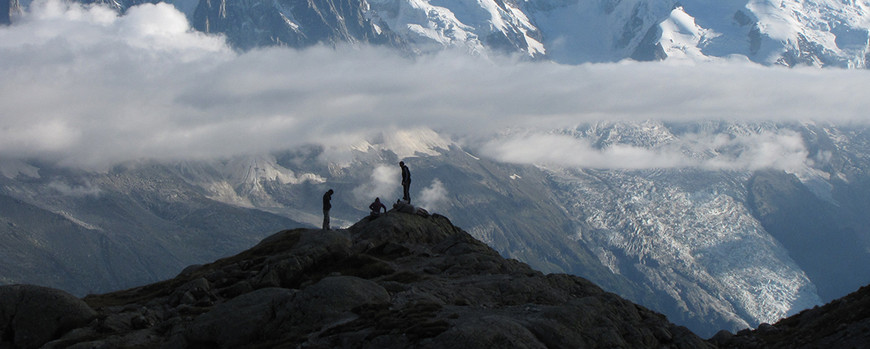
The Geosciences form an integral part of Earth system research; modern Geosciences are central in the context of societal efforts to adapt to global environmental changes and are therefore highly relevant for social, economic and political decision making. In the research-oriented MSc program in Geosciences at Potsdam University, students acquire in-depth knowledge of modern Geosciences, both as a fundamental science and in their fields of application, as well as gaining interdisciplinary skills. Three majors with several areas of specialization can be selected.
| Name | Geosciences |
| Degree | Master of Science |
| Standard period of study | 4 Semesters |
| Credit points | 120 |
| Language of instruction | English |
| Start of study (1st semester) | Winter semester |
| Campus | Golm |
| Fees & Charges | Semester fees and charges: yes Tuition fees: no |
Program Content
Based on solid mathematical, physical and chemical knowledge, students deepen their understanding of the Earth system and the complex interactions of its individual components and processes as well as their temporal variability - from the geological past to the present. Subjects of study include the structure and composition of the Earth, transport processes at the Earth's surface as well as in the Earth's interior, and the economic and (paleo)environmental significance of these processes and materials. Students familiarize themselves with key scientific concepts in the Geosciences and acquire detailed knowledge of the state of research and current methodological approaches in selected fields.
The ability to work together in an interdisciplinary manner is fostered. Personal and transferable skills, e.g. with regard to communication, teamwork, conflict resolution, the independent implementation of projects, and the preparation of reports and presentations, are promoted through varied forms of teaching (lectures, exercises, seminars as well as laboratory and field practicals at localities throughout the world).
Graduates of the MSc program are prepared for their future activities and tasks in high-level positions at universities, in research institutions, in geoscientific and environmental authorities as well as in associations and non-governmental organizations (e.g. museums, geo- and nature parks). The program also prepares students for leading positions in the private sector, such as large international companies (e.g., energy companies, industrial materials research and rare metals, hazard and risk analysis) and geo-consulting firms (e.g., geographic information systems and remote sensing, groundwater development and protection, subsurface storage and sustainable energy development and utilization).
Prerequisites for Admission to the Master’s Program
The following prerequisites are required for the the Master's degree program in Geosciences:
- undergraduate academic degree in Geosciences from an institution of higher education with a standard period of study of at least three years, amounting to at least 180 credit points with a share of at least 24 credit points in the subjects of geosciences (earth sciences, mineralogy, geology, geophysics or related subjects), as well as a total of at least 24 credit points from courses in mathematics, chemistry and physics, with at least 6 credit point per subject;
- proof of English language skills that correspond at least to the B2 level of the Common European Framework of Reference for Languages (CEFR);
- applicants who are not German, a document certifying German language skills that correspond at least to the A2 level of the Common European Framework of Reference for Languages (CEFR)
You can read more about the subject-specific admission requirements in the respective admission regulations.
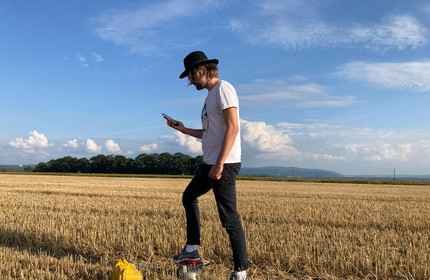
Alumnus
„The Master of Science program at the University of Potsdam has inspired me and opened new interesting doors for me. The institute is very well equipped and offers optimal conditions to immerse yourself in various areas of geosciences. The lecturers are very helpful and have excellent networks to the non-university research institutes in Potsdam.“
Program Structure
The Master's program in Geosciences at the University of Potsdam is offered as a single-subject program with a standard period of study (full-time study) of 4 semesters and 120 credit points. The Master's program includes three majors with the contents shown in the following overview. For additional information, please consult the subject-specific degree regulations or the Departmental Advisory Office.
Major | Major | Major |
|---|---|---|
Sedimentary Earth System Record + | Theoretical Geophysics + | Advanced Mineralogy and |
Data Analysis + | Geophysical Inversion and | Methods in Mineralogy and |
In-Depth Modules | In-Depth Modules | In-Depth Modules |
| In-Depth Modules Geology III + IV | In-Depth Modules Geophysics III + IV | In-Depth Modules |
| Pratical work or Internship | Pratical work or Internship | Pratical work or Internship |
| Master Project | Master Project | Master Project |
CONTENT AND CREDIT POINTS (Detailed Overview)
Advantages at a Glance
The Institute of Geosciences has undergone a generational change in recent years, with the foundation of, in addition to the established groups, new research groups focusing on new, cutting-edge topics such as volcanic seismology, geological remote sensing, and analytical mineralogy.
In the course of this, all bachelor and master courses have been fundamentally revised, with an emphasis on consistently analytical and quantitative methods, sophisticated methods of data acquisition in the field and laboratory, and subsequent data analysis, as expected of modern geoscientists today in basic research and in applications outside academia.
The partnership with the neighboring institutes GFZ, AWI and PIK with jointly appointed professors significantly expands the research and teaching portfolio of the Institute of Geosciences. This results in almost limitless, in the truest sense of the word, opportunities for students to participate in research projects.
Departmental Advising/Contact
Dr. Martin Timmerman | Focus Mineralogy
Phone: +49 331 977-5877
E-Mail: timmerugeo.uni-potsdampde
Campus Golm | Building 27, Room 0.39
apl. Prof. Dr. Martin H. Trauth | Focus Geology
Phone: +49 331 977-5810
E-Mail: trauthugeo.uni-potsdampde
Campus Golm | Building 27, Room 1.32
Dr. Julien Guillemoteau | Focus Geophysics
Phone: +49 331 977-5782
E-Mail: julienugeo.uni-potsdampde
Campus Golm | Building 27, Room 0.35
Application and Enrollment
Have you decided to study Geosciences at the University of Potsdam? Then you should take the next step and get more information about the current application and enrollment procedures at the application website.
This description is based in part on information from the subject-specific regulations for a master’s degree in Geosciences at the University of Potsdam dated January 12, 2022 (AmBek No. 12/22, p. 401), as well as the ammendments of these regualtions.

